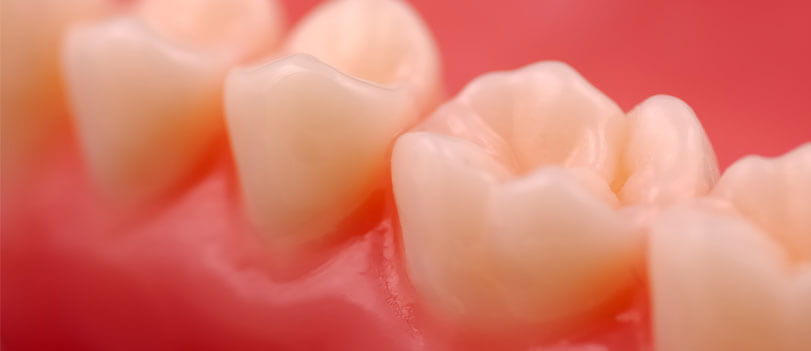Periodontal Treatment
Home / Our Services / Periodontal Treatment

Periodontal (gum) disease is a leading threat to many patients’ oral health. This pervasive condition can destroy teeth, gums, and bone – especially if it goes undiagnosed and untreated. Gum disease often begins without noticeable symptoms and can advance quite quickly. Our team at Tate Family Dentistry takes all measures to prevent the development of advanced gum disease while also providing comprehensive treatment to improve oral health.
Gum Disease and Your Health
Advanced periodontal disease is aggressive and can literally destroy your oral health. In addition to its threats to your oral health, research has shown that this condition is linked to many other ailments including diabetes, cardiovascular disease, and Alzheimer’s.
Like many other diseases, early detection is essential to stopping the progression of the condition and preserving oral health. This is why our dentists stress the importance of receiving regular checkups and cleanings. Our team also strongly encourages our patients to practice thorough oral hygiene at home.
The leading contributor to gum disease is the accumulation of tartar, which is calcified plaque. Tartar cannot be removed with home-care and when it accumulates, it builds up below the gum line and along the roots of teeth. Tartar and plaque are full of bacteria as well, which inflames and irritates the gums, leading to infection.
As tartar builds up and as the gums react to irritants, the gingival tissue will recede (pull away) from teeth. Gum recession breaks down the supportive bond between teeth and gums while also leaving the roots of teeth exposed to debris, bacteria, and tartar – all of which contribute to disease and tooth loss.
Periodontal Therapy
When dental cleanings and home care falls short, professional treatment is necessary to stop or slow down the advancement of gum disease. Special prophylaxis called scaling and root planing is usually administered to remove tartar buildup deep within the gums and along the roots of teeth.
Scaling and root planing (sometimes abbreviated as SRP) is a cleaning treatment specifically designed to address periodontal disease. This treatment involves accessing the innermost parts of the gums to clean them and remove infected or necrotized tissue. Tartar that has accumulated along the roots of teeth is removed and the roots of teeth are gently filed to produce a smooth surface that helps prevent the buildup of new tartar.
SRP is minimally invasive and depending on a patient’s unique needs, may be administered in increments over time. In some instances, our dentists may prescribe antibiotics and specialty mouth rinses to help improve gum health. More advanced cases of gum disease may require periodontal surgery.
For tips on how to prevent gum disease, or to reserve a checkup or cleaning, call Tate Family Dentistry today.
Common Questions
Periodontal disease is inflammation of the gum tissue that results in symptoms such as redness, swelling and bleeding in its mildest stages. As periodontal disease advances, the symptoms become more severe, including gum recession, tooth sensitivity and even tooth loss in the most severe cases. The treatments for periodontal disease become more invasive as the disease progresses, so it’s important to monitor your gums for signs of this condition so that you can seek treatment promptly.
Since gum disease is caused by oral bacteria, taking steps to limit the amount of bacteria in your mouth will go a long way toward reducing your risk of developing this condition. You can do this by brushing twice each day for two minutes at a time and flossing thoroughly along the gumline to disrupt any accumulation of plaque and tartar in that area.
Getting routine professional dental care (exams and cleanings) twice a year also will help to prevent periodontal disease. The dental hygienist can remove any additional plaque and tartar that build up despite your home oral hygiene routine, and your dentist can monitor your gums for signs of inflammation so that it can be treated promptly if it does develop. Limiting your consumption of sugary foods and beverages can also help to prevent periodontal disease, as oral bacteria use those sugars as a nutrition source.
Gum disease is caused by oral bacteria, which attack the gum tissue and cause the inflammation associated with this condition. The oral bacteria is found in plaque, the sticky film that coats the surface of the teeth, and tartar – which is a hardened substance that is the result of persistent plaque buildup.
Gingivitis is the mildest form of gum disease, and it is marked by symptoms including redness, swelling or bleeding of the gums. Gingivitis typically can be treated with a deep professional dental cleaning with minimal discomfort, but if you fail to get treatment in a timely fashion, your gum disease can advance to periodontitis, which has more severe symptoms and warrants more invasive treatments.
